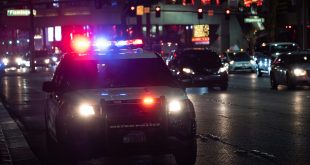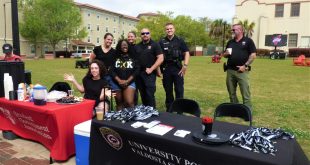By Hannah Allam
McClatchy Newspapers
(MCT)
BAGHDAD _ Iraqi forces who were conducting raids on militants Monday in the southern port city of Basra freed a British journalist who’d been held hostage for two months, the Iraqi military announced.
Richard Butler, a photographer who was on assignment for CBS, appeared to be in good condition in Iraqi television footage that showed him smiling broadly as jubilant Iraqi officials embraced him and celebrated the rescue, a sorely needed morale boost for the country’s beleaguered security forces.
In Baghdad and to the north, however, violence continued as car bombs, mortars, assassinations and other attacks left more than 30 people dead and dozens wounded.
The U.S. military command announced the deaths Monday of two American soldiers in separate homemade-bomb attacks, one in Baghdad and the other north of the capital in the Salahuddin province.
A suicide car bombing killed at least 14 members of the Kurdish peshmerga militia and injured 15 others in the northern town of Sinjar. Kurdish authorities said the group had traveled to Sinjar for a vacation after weeks of duty in nearby Mosul.
Authorities in Diyala province discovered a mass grave containing the remains of 20 to 30 people. The badly decomposed bodies appeared to have been at the site for nearly eight months. It was unclear who the victims were.
Butler had been kidnapped from his hotel in central Basra in February. The Iraqi military said he was freed during an operation in Basra’s Jubaila district. In the past month, Shiite Muslim militias fought fierce gun battles with U.S. and Iraqi troops until an agreement, brokered largely by neighboring Iran, ended the worst of the fighting.
U.S.-backed Iraqi Prime Minister Nouri al-Maliki launched a crackdown on Basra’s militias and gangs, many of which are allied with his Shiite political rivals. In recent days, the Iraqi government began house-to-house raids for arms, weapons, drugs and other contraband in some of Basra’s most dangerous neighborhoods.
Iraqi military spokesman Mohammad al-Askari said that Butler was discovered around noon when Iraqi forces searching the area drew fire from one of the homes. The troops returned fire and then stormed the house, al-Askari said. They took one gunman into custody as others fled.
“Then they found one person with a hood on his head and his hands tied behind his back. When they told him to lift his hood, they discovered it was a foreigner,” al-Askari said. “It was by chance.”
Butler told Iraqi state television that he’d been sitting in a room, unable to see what was happening because of the hood, which he was required to wear at all times. He said he’d heard the Iraqi forces arrive and their ensuing struggle with his captors before removing his hood and realizing he’d been rescued. The Iraqi troops delivered Butler to British forces stationed in the area.
“The Iraqi army stormed the house and overcame my guards and they burst through the door,” Butler told Iraqi television. He added that the performance of the Iraqi troops was “brilliant” and that he looked forward to being reunited with his family and his colleagues at CBS.
___
(McClatchy Newspapers special correspondents Hussein Kadhim in Baghdad and Yasseen Taha in Sulaimaniyah, Iraq, contributed to this report.)
___
© 2008, McClatchy-Tribune Information Services.
 The Spectator The independent student newspaper of Valdosta State University
The Spectator The independent student newspaper of Valdosta State University






